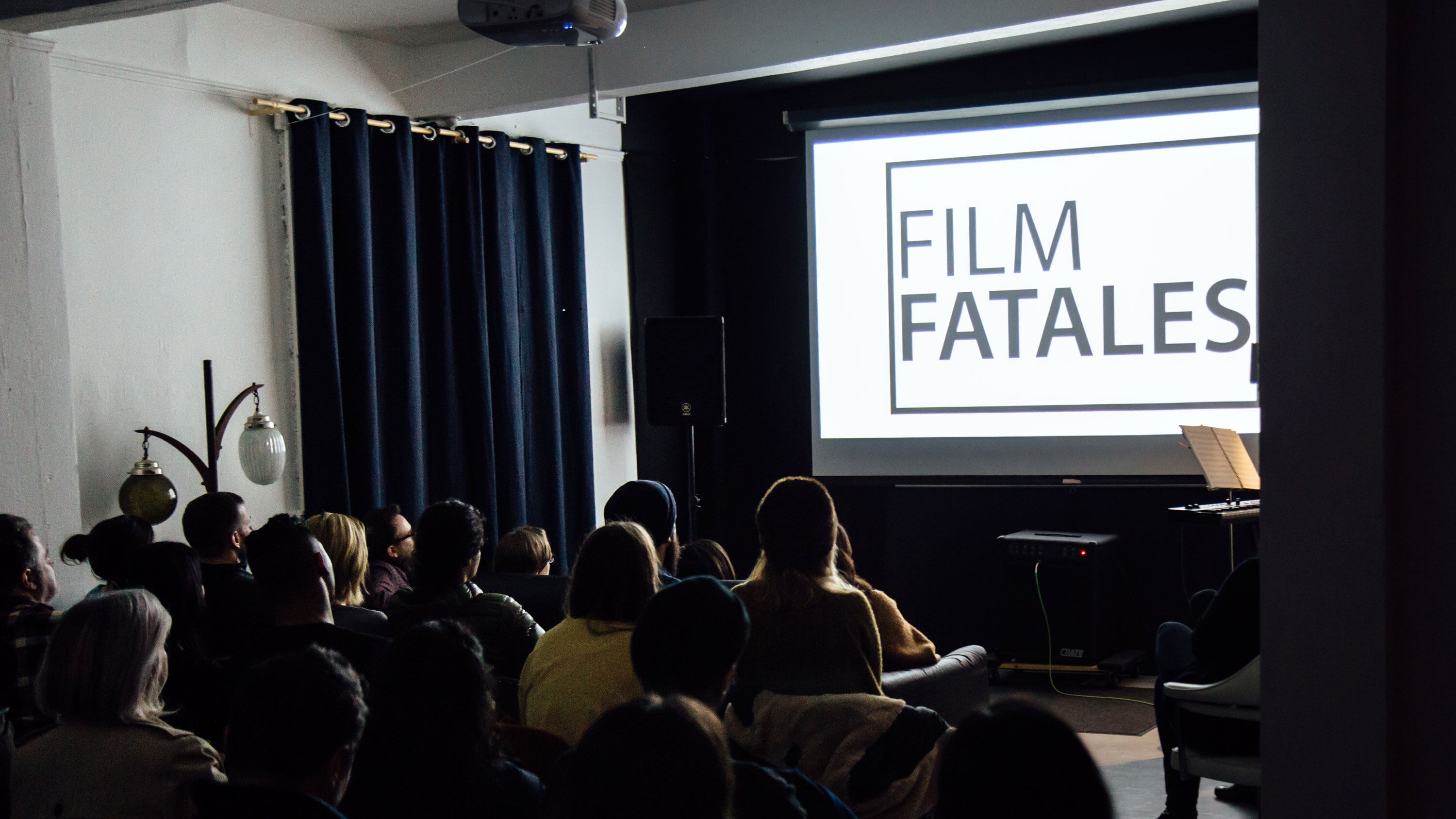You exit Interstate 5 into a part of industrial North Portland where concrete silos and shipyards line wide, empty streets. Between an idle coal car and a vacant security booth is a single-story concrete bungalow that used to be a fireboat station, around which about a dozen cars are parked. Matt McCormick, filmmaker and Portland State professor, tapes a "SOLD OUT" sign to the door, which opened only 11 minutes ago.
Along with Portland filmmaker Chris Freeman, he's hosting tonight's screening of eight shorts organized by Portland's PDX Film Fatales collective of women filmmakers. The last three screenings at the Boathouse Microcinema have sold out. McCormick and Freeman think the rest will, too.
Space is extremely limited at the weekly screenings, which McCormick and Freeman have been running since late February. Stepping inside the cozy screening room—the station's former bunkhouse—is like stepping into a who's who of Portland's film scene. Alicia J. Rose, who's behind the wildly popular web series The Benefits of Gusbandry, is screening a music video tonight. Cambria Matlow is showing an excerpt from her hauntingly beautiful 2016 snowboard documentary, Woodsrider. Before the lights dim, the crowd of about 30 talks and laughs across the room while seated on folding chairs. Everyone here knows or kind of knows one another.
"The whole point is to celebrate what's already here," says McCormick. "We aren't trying to build anything new, but reinforce these communities that have been in Portland for quite some time, and to help them continue to flourish on their own."
Boathouse Microcinema has roots in the Portland film scene of the '90s, which McCormick joined "fresh out of art school" when he moved to Portland in 1995. McCormick's Peripheral Produce film series—a mashup of experimental local film, music and art— introduced a generation of art kids to Portland's DIY film scene.
"By the late '90s, we'd do shows, and hundreds of people would show up," says McCormick. "When I started Peripheral Produce, so much of it was about access to this work. It felt like this was an important thing, and the way audiences in Portland reacted confirmed that suspicion. We'd sell out the Hollywood on a regular basis."
Peripheral Produce evolved into the PDX Film Festival in 2002, which McCormick ran until 2009. By then, the proliferation of Netflix, Vimeo and other streaming services had greatly expanded the availability of indie and experimental film. "Things that had truly felt like subcultures were becoming networked on the internet, and [PDX Film Festival] didn't quite feel as vital," he says, "so I let it go on indefinite hiatus."
But years later, the sense of community fostered by regular events began to wane. "We were missing real-life, interactive experiences where we could come together and hang out," says McCormick. When space opened up in the Boathouse, which he has leased as a studio and art space alongside other artists since 2001, McCormick and Freeman took a chance at rekindling this slice of the Portland film scene.
"We wanted to fill [the Boathouse] up and have the screenings feel fun and comfortable; to have a good time," explains Freeman. "I think, too, with the current political climate in our country, it feels even more vital. It reminded us of the need for community and these real-life connections. Having an event in a secret boathouse can be a revolutionary act when you're in a world like this."
McCormick and Freeman invite filmmakers, who choose their own programming. This week's screening, titled Keep Portland Portland, features works by award-winning DIY filmmaker Vanessa Renwick and Pacific Northwest College of Art professor and animator Lori Damiano. Freeman, who organizes the technical aspects of the screenings, is the only one who sees any of the works ahead of time. "The only requirement is that the filmmaker has to be in the audience," says Freeman. "These screenings are about community."
After the microcinema's inaugural season wraps up at the end of May, McCormick and Freeman are unsure whether there will be another. "There's still a whole lot of filmmakers I want to include in this series that I realize I can't," McCormick says. "There's a lot of really talented people in Portland. This gives us a chance to rekindle some energy that had been lost over the past couple of years."
SEE IT: Keep Portland Portland screens at Boathouse Microcinema, 822 N River St., with filmmakers Vanessa Renwick and Lori Damiano in attendance, on Wednesday, March 29. 7:30 pm. See boathousemicrocinema.com for a full schedule. $8 suggested donation, cash only.
